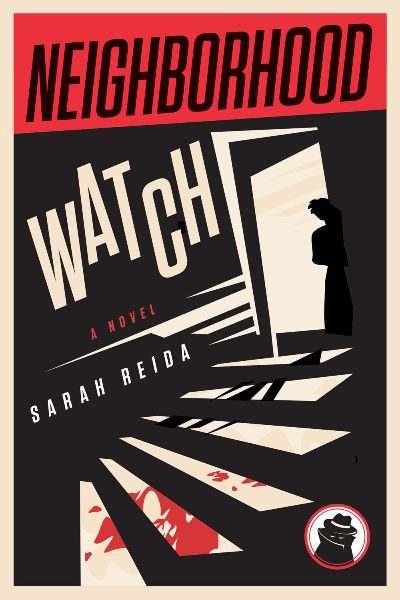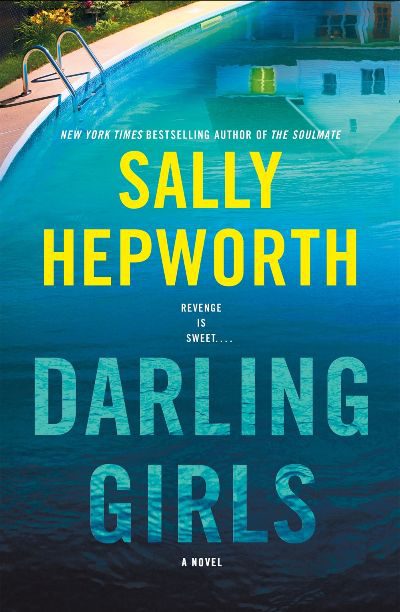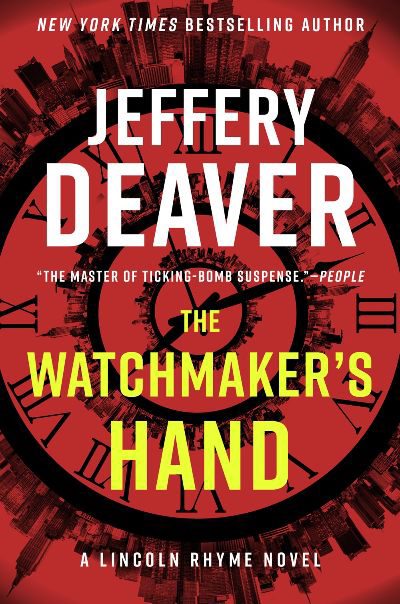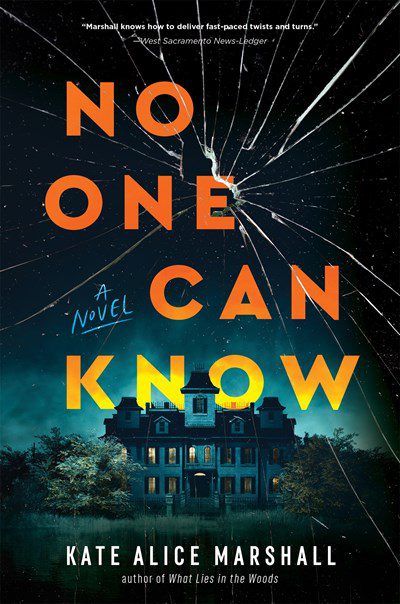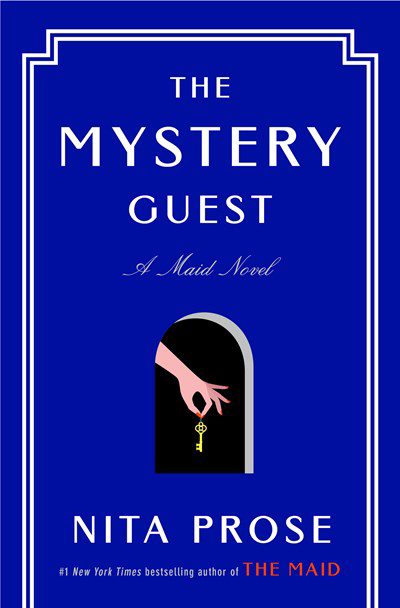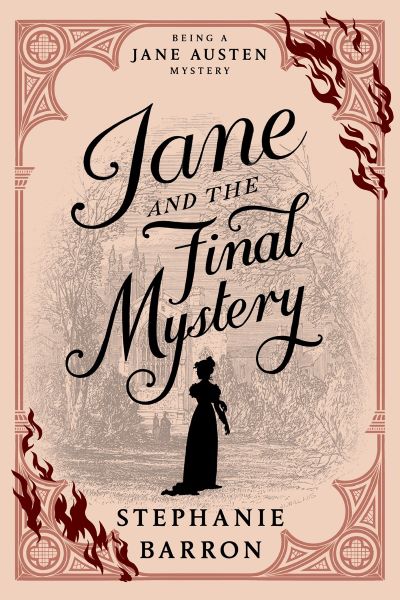Jhonni Laurent is the first female sheriff in her rural Indiana town of Field’s Crossing and its surrounding quad-county area. She tries to be more community oriented than her predecessor, showing up at the first day of school to greet parents and students, for example, and avoiding all efforts at improper influence. Her work is a hit with locals but isn’t appreciated by a colleague whom she beat in the race for the job. Or his nasty buddy at the local newspaper, who’s doing all he can to get Jhonni out of the political picture. She doesn’t need the first local murder in…ever?…to happen on her watch, but when teenager Stephanie Gattison is found frozen in a snowbank, it looks like foul play. The body is barely thawed before another victim is found, this time an ice fisher who’s found frozen to the lake surface. Fans of Emily Littlejohn’s Detective Gemma Monroe and Tony and Anne Hillerman’s police officer Bernadette Manualito will enjoy making the acquaintance of this steadfast, likable, and capable sheriff, while those who love a small-town atmosphere, with its closeness as well as its backbiting, will feel right at home here. A debut author to watch.
Review
This book could just as well be titled When the HOA Attacks or Ring Cameras on Steroids: A How-To. Oleander Court, a street in ritzy Alpharetta, GA, has it all. The fountain with $500 apiece koi, the perfectly maintained lawns (did I mention that HOA?), the perfectly Botoxed neighbors. But a few residents keep things from being too plastic. An artist, Helen Beecham, has moved in and while she likes to observe the others, she’s doesn’t love their snooty book clubs (at which the book is never mentioned) or other tortuous gatherings. A Korean American family, the Jungs, lives on Oleander, too, amid nasty comments; one neighbor in particular spreads the rumor that the mother barely speaks English, only Chinese. Lesbian couple Ray and Laura are hiding their rocky marriage and past secrets. And then there’s Adelaide, who formerly lived in a trailer park but is now married to a doctor and struggling to feel she belongs. Closed circle meets cozy when the nastier neighbors start getting bumped off in their homes, but with little attendant grisliness and dollops of dark humor. Come for the bitchiness, stay for the deep characterization of the oddball characters as well as the puzzling whodunit.
Every flight headed to Italy should have on board a few dozen copies of Trinchieri’s mysteries—they are the perfect warm up to an Italian vacation, full of wry humor, eccentric characters, a gentle murder or two, plenty of excellent wine, and best of all a whole lot of Tuscan cooking. Ex-NYPD detective Nico Doyle moved to the small town of Gravigna after the death of his wife, a native, and he’s been embraced by the residents, even helping out in the kitchen of his in-laws’ ristorante (and getting great reviews). But he can’t leave his law enforcement years completely behind him, and he’s regularly summoned by Perillo, one of the local carabinieri, to help out on a case. Here, in the fourth installment, the murder victim is an older woman—owner of the handsome Villa Salviati—whose murder produces a bevy of possible suspects, including lovers, friends, and a couple of mean-spirited daughters. Will Nico and Perillo ever be able to return Gravigna back to more tranquil days? A delight from start to finish.
WHAT a rollercoaster. The “darling girls” in question–Jessica, Norah, and Alicia–are “foster children,” stuck being referred to that way even now that they’re adults. They aren’t biological sisters, but the mistreatment meted out at Wild Meadows by their foster mother, the psychologically cruel and unpredictable Miss Fairchild, has forced them into a lifelong bond. These days, Jessica is a housecleaner who steals her clients’ prescriptions and is being pursued by the relentless Debbie Montgomery-Squires, who wants her Valium back. Norah is on probation for her latest attack, one in a long string of anger-fueled outbursts. And Alicia is barely holding it together as a social worker who’s terrified to pursue a relationship with a female friend who could be more. The three are thrust back into their awful past when the police call to say that a body has been found buried at Wild Meadows, one that appears old enough to have been from their time at the “home.” What ensues are flashbacks to the children’s bizarre, cliff-edge lives as wards of a tyrant, while the darkly funny present-day tale looks at women who fight the system and their circumstances tooth and nail to avoid being victimized again. This is the rare story that’s equally character and plot driven, with the “sisters” portrayed as distinct and lovable and the plot just packed with twists. Hating Miss Fairchild is the icing on the cake
This fast-paced debut takes on the world of biotechnology, focusing more on the attendant politics and celebrity than the tech itself. The celebrity in question is Professor Sarah Collier, who’s retired after winning a Nobel Prize. She’s so reclusive that she didn’t even pick up her Nobel in person, but her husband is desperate for her to get back out there and help his faltering neuroscience career. He’s increasingly frustrated by her unwillingness to travel with him to Geneva, where a mysterious new technology will be unveiled at the Schiller Institute, with, the institute hopes, Sarah’s endorsement. The promise that the new technology could help Sarah’s newly diagnosed Alzheimer’s makes the endorsement tempting, but steely pressure from the institute’s directors and its frightening head of security is exhausting. As Sarah becomes ever more forgetful and disoriented, the risks to her marriage and even her life multiply while the billions of dollars on the line make malevolent forces ruthless. For fans of actor-author Armitage and of John Marr’s biotech-infused thrillers.
Paraplegic forensic Captain Lincoln Rhyme; his wife, Detective Amelia Sachs; and their team of NYPD officers race against the clock in Deaver’s terrifying thriller. A construction crane collapses, and without a last-second move by the operator, it would have done extensive damage. The crash ends up only killing several people rather than hundreds. It was sabotage, and the crash is only the beginning, as those claiming responsibility will conduct another act in 24 hours unless their demands are met. One by one, the team members experience accidents designed to eliminate Rhyme’s trustworthy colleagues and those he truly cares about. Rhyme learns that the mastermind is someone he has been unable to capture, The Watchmaker. The Captain’s nemesis seeks revenge, his end goal to murder Rhyme. Deaver is the master of manipulation and telling a story quickly, and he is at the top of his game here. Readers should not be intimidated by the 15 previous entries in the series, as this one can be read as a standalone. The Watchmaker’s Hand is a fantastic thriller with great characters and jaw-dropping surprises.
What starts out as a simple story of marital discord grows into something so much richer and more terrifying. Emma and her husband are in a bad way. They’re broke—he’s lost his job, a fact he has been hiding from her—and she’s pregnant, although he’s pressuring her to have an abortion. The one asset Emma has is her share in the family home. But neither Emma nor her two sisters, whom she is estranged from, have stepped foot in the house in 14 years. And for a good reason: their parents were murdered there, leaving behind a horrible, bloody mess and years of psychological damage. But Emma’s husband insists that moving back in is their only option, despite Emma’s belief that their taking up residence in the house will unseal secrets that have been kept buried for years. The story moves artfully between the past, especially the night of the murders, and the present, when Emma’s sisters show up on the scene, and law enforcement reinforces the 14-year-old belief that Emma was the murderer. We end far from where we started, in a novel that is both tremendously complex and wonderfully readable. A remarkable achievement.
Millions of fans of Molly—“the maid”—Gray will be delighted with this wonderful second installation, which features returning characters (such as Mr. Preston, the congenial doorman, and Detective Stark, the grouchy cop) along with a handful of new characters. But most important is J.D. Grimthorpe, renowned mystery author, who chooses Molly’s five-star Regency Grand Hotel to make a most important announcement. No sooner does he mount the stage in the perfectly appointed tea room (expect nothing less from Molly, the head maid) than he suddenly drops dead. Very, very dead. And not from a medical condition. J.D. Grimthorpe was murdered. The path to finding the murderer is a long and twisted one, taking Molly back into her childhood and her early days working alongside her beloved Gran. But as guests and employees start looking at each other with accusation in their eyes, the pressure for Molly to solve the case mounts. In the first volume, The Maid, there was much discussion about Molly being autistic or otherwise neurodivergent. Not qualified to make such an assessment myself, I prefer to think of Molly as eccentric. As this tale draws to a close, several secrets are most satisfyingly revealed, and one major opportunity presents itself, which will leave me in a state of wonder until the next Molly mystery. Pronto, please.
This book just picks you up and catapults you into five or so hours of unrelenting suspense and anxiety. British-born Charlie came to New York City to attend a prestigious journalism school—much like Columbia’s—and just months into the program, she witnessed a horrific mass murder, quickly dubbed “Scarlet Christmas.” Since then, Charlie has built a life that largely leaves those nightmarish events behind her. Today, she’s engaged to a super-rich scion of a publishing house and is herself editor in chief of a leading magazine. But she still struggles in wanting to know her past, although even intensive work with a therapist won’t unlock the events of that fateful Christmas eve and what her role in them may have been. Then Charlie learns that a documentary film is in development—it’s the tenth anniversary of the murders—that promises to tell the whole truth. But what is the truth? Whatever it might be, Charlie is terrified of the revelations that might come tumbling out and fears that her oh-so-perfect Manhattan life will collapse on itself like a house of cards. How far will Charlie go to keep the lid on the pressure cooker? A brilliant debut that isn’t promising—it completely delivers.—
In March of 1817, Jane Austen is struggling to complete her latest manuscript, The Brothers, in spite of her declining health: “I, who enjoyed a riotous constitution throughout my four decades, had felt so little like myself in the previous twelvemonth that I found it hard to remember being free of pain.” But when the 15-year-old son of her widowed friend Elizabeth Heathcote (whose brother once proposed to Jane) is accused of the drowning death of a senior classmate at the prestigious Winchester College boys’ boarding school, she summons the energy to travel to Winchester with her beloved 19-year-old nephew, Edward, to investigate. There, she learns from Elizabeth that for the past three years, William had been the “subject of relentless attacks on his spirit, his mind, and his standing in the world.” He had been especially bullied by the sadistic late Arthur Prendergast, who enjoyed hazing the younger boys. Is there a connection between Prendergast’s murder, the malicious campaign against William, and an entailed inheritance that would benefit William? Jane is determined to clear William’s name before she succumbs to her illness. Over the course of 14 books, the multitalented Barron, who also pens spy thrillers as Francine Matthews, has brilliantly combined authentic historical and biographical details with skillful plotting and a credible evocation of Austen’s wry, distinctive voice. She brings the English author’s final investigation to a poignant, unforgettable close. Fans of this historical series will not be disappointed, and kudos to Barron’s excellent double-entendre title. While the earthly crime may be solved, the final mystery is one that we all will face.


